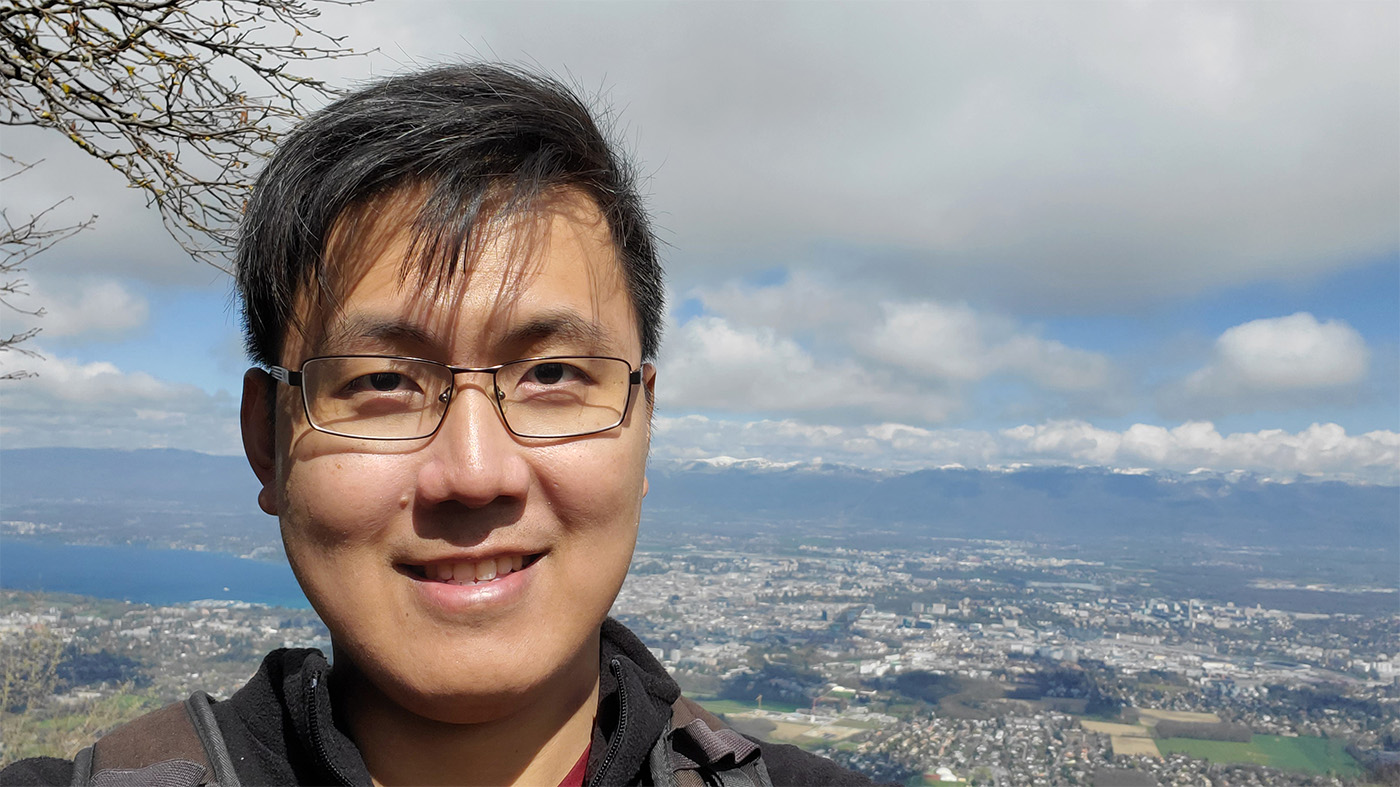Highlights
Meet a CQTian: Ho Wen Wei
 CQT Fellow Ho Wen Wei enjoys travelling and learning about new cultures and places. He is pictured here during a hike up the mountain Salève in France, which overlooks Geneva, Switzerland.
CQT Fellow Ho Wen Wei enjoys travelling and learning about new cultures and places. He is pictured here during a hike up the mountain Salève in France, which overlooks Geneva, Switzerland.
How did you come to be at CQT?
I joined NUS physics as a Presidential Young Professor in August 2022, after a couple of postdoctoral stints at Stanford and Harvard University. Since my field of research spans both the universal aspects of large quantum systems out-of-equilibrium, as well as quantum information science, it seemed a natural step for me to be affiliated with CQT, where cutting-edge research in quantum physics is being done. I joined as CQT Fellow in June 2023.
Has anything changed for you since becoming a CQT Fellow?
I’ve enjoyed having many academic discussions with the people at CQT. I have also been collaborating on a research project with a CQT student.
How did that collaboration come about?
Harshank Shrotriya, who is a PhD student from Principal Investigator Kwek Leong Chuan’s group, approached me when I first joined NUS as he had an interest in my research. We proceeded to explore more in-depth the role of global system topology in determining deep thermalisation times. Deep thermalisation is a phenomenon that appears in the dynamics of large quantum systems.
We found that the system topology affects the deep thermalisation times in a quantifiable way, which regular thermalisation is insensitive to! This shows that deep thermalisation is indeed a novel phenomenon probing physics going beyond regular standard quantum thermalisation.
What drew you to quantum physics research?
I’ve always liked to understand how the world works, so it should come as no surprise that I chose to do physics as a major for my undergraduate degree. When it came to choosing a specialty for my PhD, I was intrigued by the idea of how interesting collective, macroscopic phenomena can emerge from the interactions of many microscopic degrees of freedom. I elected to study theoretical quantum condensed matter, specifically, the universal aspects of large quantum systems in non-equilibrium settings. My research also eventually took me into the area of doing quantum information science with present-day and emerging quantum technologies, which forms a core part of my research today.
You were awarded a National Research Foundation Fellowship for research on “Non-equilibrium Many-Body Physics and Quantum Information Science in the age of Programmable Quantum Systems”. Can you elaborate?
We are living in an exciting time where large quantum systems are being engineered, controlled, and interrogated with great detail. This gives us opportunities to probe new physics in uncharted territories. One of the aims of my research is to develop the theory to describe and predict interesting universal phenomena in such new physical regimes. Another aim of my research is to harness such systems and phenomena for the purposes of doing useful tasks, such as to simulate and learn a complex material (quantum simulation), or to manipulate information (quantum information processing and computation). These fall under the umbrella of 'quantum information science'. I also collaborate with experimentalists to verify my theories and predictions.
What else are you working on?
I keep varied interests in other topics such as topological phases of matter, and the use of machine learning methods to understand complex phenomena.
What is your favourite aspect of your work?
The fact that I am discovering something new every day!
Do you have open positions at the moment?
I have plenty of open positions in my group – from PhD students, Masters students, to postdocs. Please contact me!
What do you enjoy outside of work?
I enjoy travelling and learning about new cultures and places. I also enjoy good food, who doesn’t?
Learn more
Related Stories
 | Welcome to three CQT Fellows June 27 2023 |
Randomness from the deep November 20 2023 | |
New blueprint to realise novel quantum phase transition November 09 2023 |






